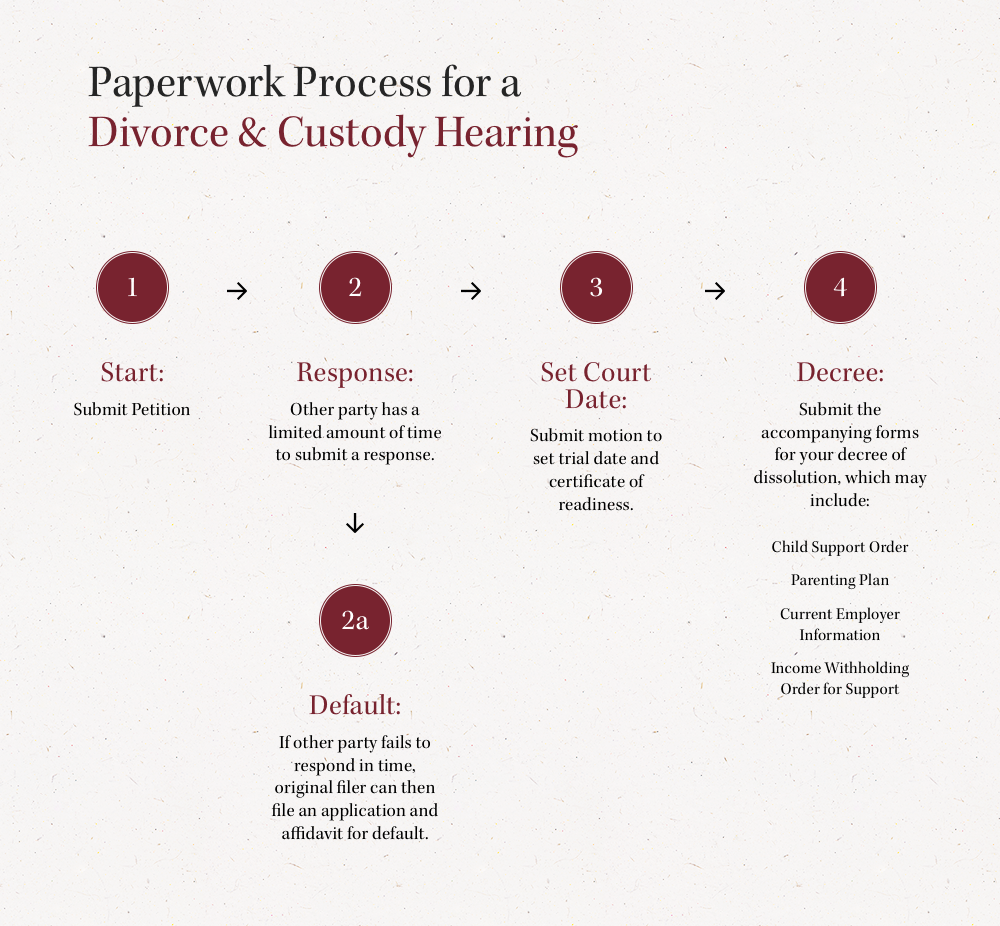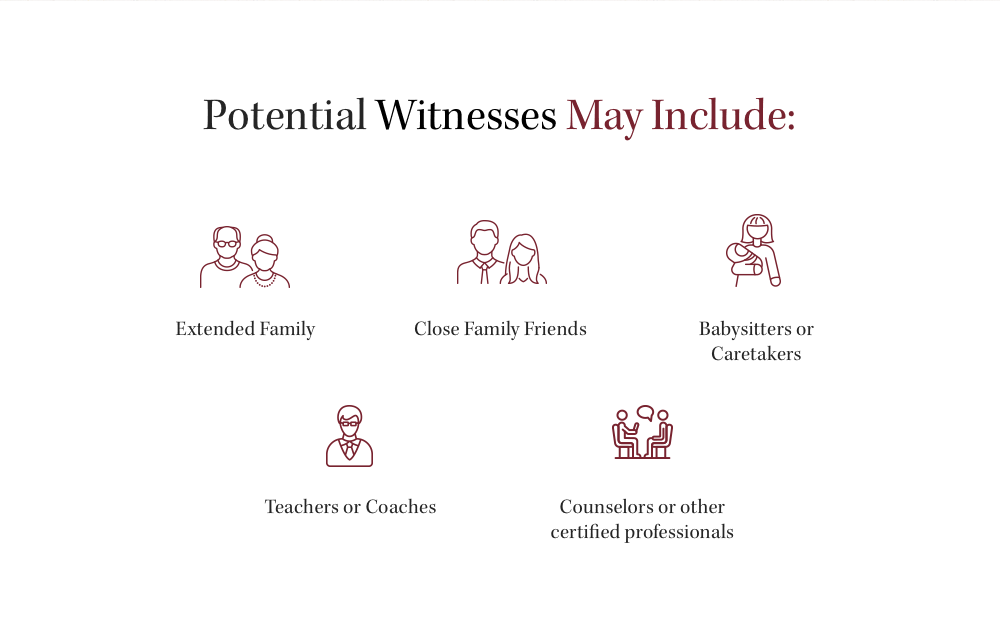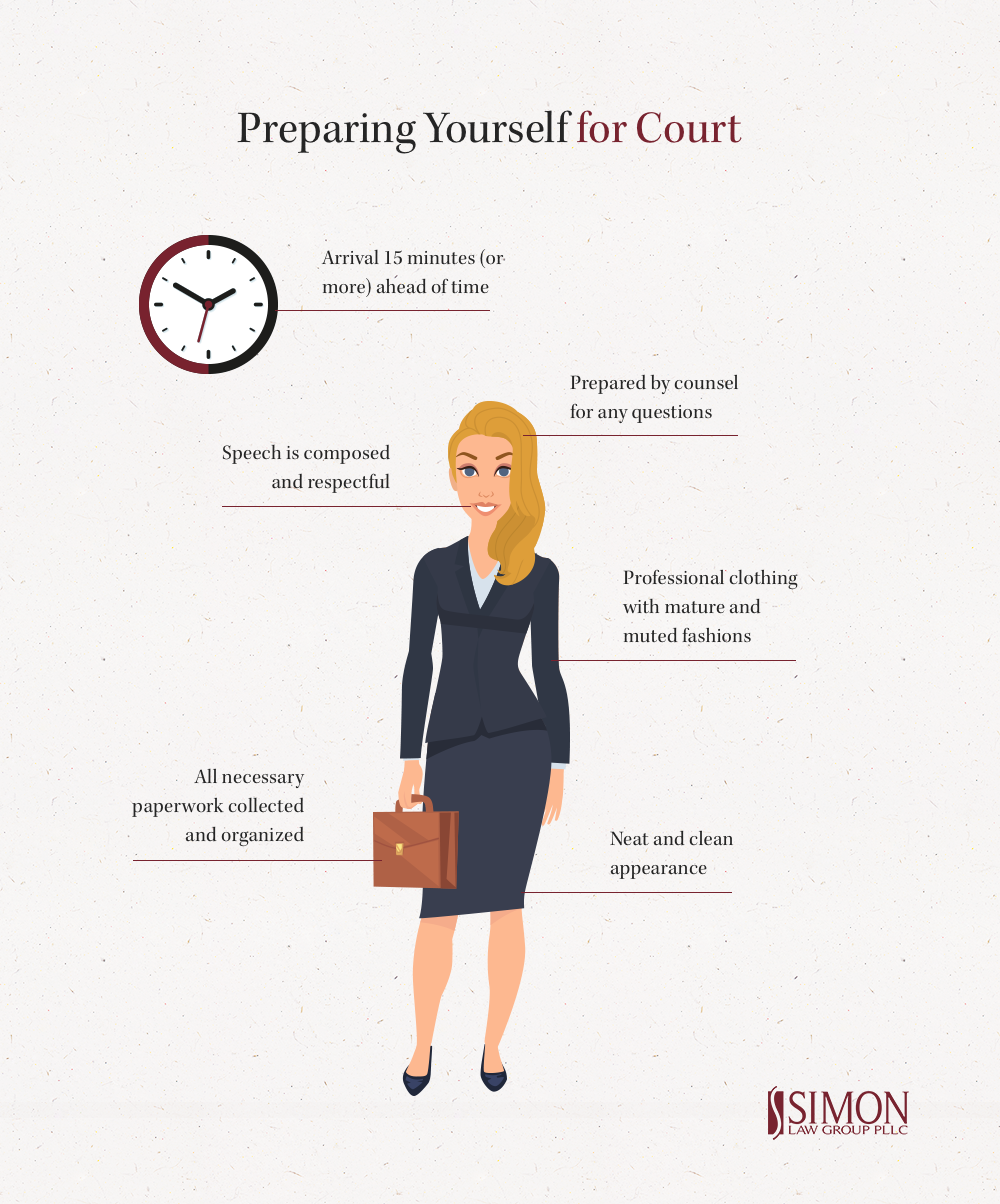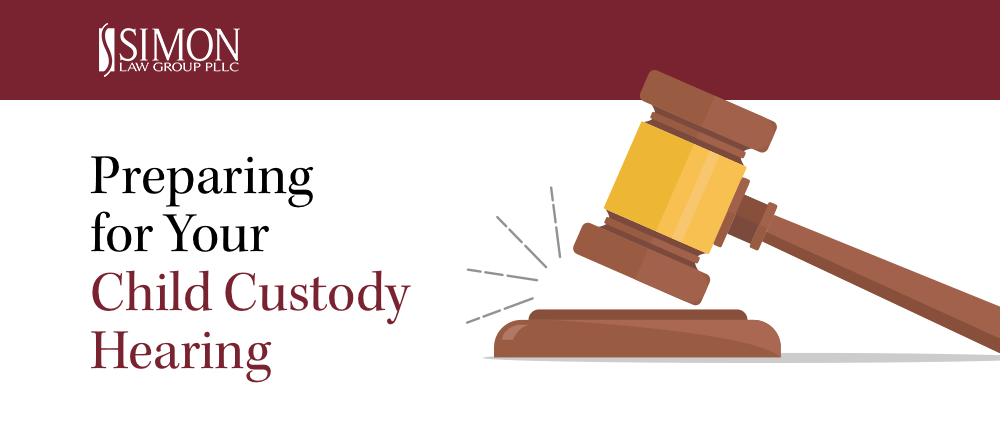A child custody hearing can make any parent nervous. So much depends on the outcome for you and your family. However, thoughtful preparation ahead of time can help you alleviate nerves and put your best foot forward during the proceedings.
Preparing clients for hearings is an important part of an attorney’s role. Before scheduled court dates, your lawyer will help you submit the appropriate paperwork, solidify the details of your case, and run through talking points and expected questions. However, this handy guide can remind you what to expect, how to plan ahead, and what you need to bring.
About Child Custody Hearings
Many parents try to reach a custody agreement through a mediator first, as it’s best to avoid the cost and stress of court whenever possible. If mediation fails, a family court steps in to determine what arrangement will be in the best interests of the child. Here are three important things to know before your hearing:
- The goal of the court is to reach an arrangement that will be in the best interests of the child. Except in the case that one parent actually presents a danger to the child, this almost always means shared parenting time, or opportunities for both parents to be a part of the child’s life.
- Important paperwork should be filed before your court date, in order to enable the judge to prepare for the case. This includes a custody proposal from each party specifying exactly what they are asking for, along with key points and a prospective calendar, and an outline of the evidence and support for the proposal.
- The court’s decision is final, and not subject to further negotiation by either party. Although there are options to appeal, there’s a strict deadline, and you must show that there is a specific reason for the appeal, including misconduct, refusal of evidence, newly-discovered evidence, etc. In most cases, a custody order is not subject to renegotiation for three years or more.
In light of this information, we offer a step-by-step guide so you can ensure that you’ve dotted your “i”s and crossed your “t”s before the court date. We want you to rest easy knowing that you did all you could do to state your position and fight for the best interests of your child or children.
Step 1: Paperwork to Sort out Beforehand
Paperwork is what gets the ball rolling for child custody proceedings. It’s also essential that you have extensive paperwork filed and ready before your court date. You and your lawyer should have already filed notices and summons. The hearing will be an opportunity to review all evidence in the case and to pose questions to parents and witnesses.
Before the court date, you should submit a custody proposal. This is important because it helps the judge frame the questions they’ll ask and provides their first impression before you even enter court. The more detailed this documentation is, the better. It should have an outlined schedule of custody, along with arrangements for rides, drop-offs, extracurricular activities for the child, etc.
The Arizona Courts website provides detailed instructions regarding all necessary paperwork. See the graphic below for a simplified illustration of the process. You can learn more about the forms that need to be submitted for Arizona child custody arrangements here.
Step 2: Paperwork to Bring to Court
Your goal during the court hearing is to provide evidence that shows that your custody proposal is in the best interests of your child. To that end, there are some documents that can show that you are a fit parent, and that your child thrives under your care. You may want to bring some or all of the following:
- Proof that your child will have a good, stable home. This may include one or more of the following:
- Rental agreement/lease
- Pictures of the home that you and your child will share
- Proof of payment history
- Testimony from your landlord
- Proof of mortgage payments
- Proof that you can provide financially for the child. This may include one or more of the following:
- Copies of paystubs from your job
- Testimony or insights from your employer
- Proof of child support payments
- Documentation of assets
- Confirmation of payment history to mortgage, credit cards, loans, etc.
- Evidence of how your child does while in your care. This may include one or more of the following:
- Report cards
- Written statements from coaches, teachers, neighbors, caretakers, etc.
- Phone call or text logs between you and your child
- Evidence of how your child does while in your ex-spouse’s care. This may include one or more of the following:
- Report cards
- Written statements or complaints from teachers, neighbors, caretakers, babysitters, or others who are in a position to see the evidence of the child’s relationship with your ex-spouse.
- Proof of doctor’s visits, or medical and psychological evaluations
- Phone call or text logs between your ex-spouse and your child
- Legal records and arrest records pertaining to your ex-spouse’s criminal history, if applicable
- Record of any missed visits, missed pickups, or missed meetings with ex-spouse
Step 3: Planning for and Preparing Witnesses
Both parents are able to call witnesses to testify on their behalf during the child custody hearing. However, it’s important to choose carefully, and make sure that your witnesses are (1) long-standing sources who have had the opportunity to witness your relationship and interaction with your child firsthand, and (2) reliable individuals who will hold authority in court, perhaps due to their professional or public position, or their relationship to your child.
If your chosen witness is unable to be at the child custody hearing in person, a signed affidavit can allow them to share their insights with the court.
Now, while we’re talking about witnesses, there are some important parties for you to know about:
- Parents: Both parents are expected to testify at the hearing. They will be asked questions by the judge and should be prepared to defend their respective custody proposals.
- Children: Under Arizona law, your child will NOT be expected to testify at the hearing. In fact, the court is not allowed to coerce the child to express preference. However, if a child is an appropriate age for their preferences to be considered and they would like to speak, then the judge can speak with the child privately to hear their feedback. It’s important to note that while the child’s preferences will be considered, the court knows that a child’s preference is not always free of coercion from parents, or always in their long-term best interest. In the end, the decision is not up to the minor in consideration, but to the court.
- It may also be appropriate to elect a Guardian ad Litem, an impartial party who speaks on behalf of the child when the child is unable to testify for themselves, due to their age. This individual may also conduct research to learn more about certain questions that the court has.
Step 4: Preparing Yourself for Court
Lastly, it’s important that you yourself are well-prepared for court. As mentioned in the introduction, a lawyer can help you prepare properly. Here are some additional tips:
- Consider how you present yourself
- Dress appropriately. Be professional-looking, wear mature and muted fashions, and make sure you’re neat and well-groomed.
- Be straightforward and respectful in your address, and avoid emotional outbursts.
- Prepare for questions
- Running through your planned responses to probable questions will keep you from feeling blindsided. Here are some of the questions you may need to answer:
- Who will watch your child while you’re at work?
- Can you financially provide for your child?
- Where will the child sleep?
- Will you need to travel and if so, what considerations will be made for your child?
- How well are you able to communicate with and coordinate with the child’s other parent?
- How can you answer your child’s spiritual and/or cultural needs?
- How is your child’s relationship with your own family (their extended family)?
- There will probably be additional questions that are specific to your case. Make sure to prepare thoroughly, even practicing with your lawyer.
- Running through your planned responses to probable questions will keep you from feeling blindsided. Here are some of the questions you may need to answer:
- Arrive early
- Give yourself plenty of time to find the location, find parking, compose yourself before the trial, and meet with your lawyer to go over any last-minute notes.
Note: About the Court’s Decision
The court’s decision is final, even if you don’t agree with it. Unless you can prove misconduct or missed evidence, it’s very difficult to obtain a retrial. It usually takes about 3 years for enough time to pass that an amendment is appropriate.
Call Simon Law for Professional and Compassionate Guidance in Your Custody Hearing
Here at Simon Law, we understand the complexities and high emotional toll of child custody hearings, because we’ve been through it ourselves! With proper preparation and a strong case, you can be confident as you await your hearing date. Download our printable .pdf checklist and call us if you need assistance as you wade through this taxing time for you and your family.
To view the entire infographic, click the image below.
- Give yourself plenty of time to find the location, find parking, compose yourself before the trial, and meet with your lawyer to go over any last-minute notes.







